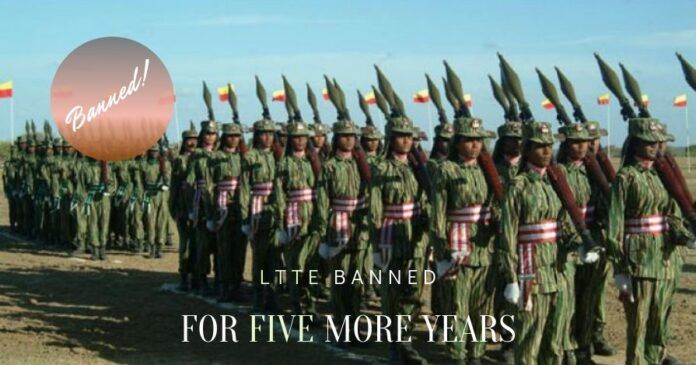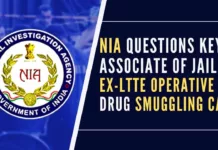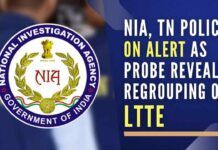
The Government of India on Tuesday extended for five more years the ban on Sri Lanka-headquartered Liberation Tigers of Tamil Eelam (LTTE), the treacherous terror group that was behind the assassination of former Prime Minister Rajiv Gandhi. The ban has been extended under the Unlawful Activities (Prevention) Act, 1967, a notification issued by the Union Home ministry stated. This extension of the ban by the Indian Government bears significance that there are still many fringe elements and certain political parties in Tamil Nadu that are still supporters of LTTE, which fizzled after the elimination of the terror outfit chief Prabhakaran by Sri Lankan Army in May 2009.
India had banned the LTTE after the assassination of Gandhi in 1991. The ban on the group was last extended for five years in 2014. The LTTE, a terror outfit based in Sri Lanka but has its supporters, sympathizers, and agents in India, came up in 1976.
Its objective for a separate homeland (Tamil Eelam) for all Tamils threatens the sovereignty and territorial integrity of India, and amounts to cession and secession of a part of the territory of India from the Union and thus falls within the ambit of unlawful activities, the notification said. The LTTE’s continued violent and disruptive activities are prejudicial to the integrity and sovereignty of India, it said.
The dreaded terror organization had even a small Air Force and Naval wings from 2006 and was finished off during the tenure of Sri Lankan President Mahinda Rajapakse’s stern actions. “The group continues to adopt a strong anti-India posture and also continues to pose a grave threat to the security of Indian nationals,” the notification said. It is a known fact that many political parties such as the DMK, MDMK, VCK and even Tamil Communist leaders supported LTTE.
LTTE not abandoned
Even after its military defeat in May 2009 in Sri Lanka, LTTE has not abandoned the concept of ‘Eelam’ and has been clandestinely working towards this cause by undertaking fundraising and propaganda activities, and the remnant LTTE leaders or cadres have also initiated efforts to regroup the scattered activists and resurrect the outfit locally and internationally, the Home Ministry said.
The separatist Tamil chauvinist groups and pro-LTTE groups continue to foster a separatist tendency amongst the masses and enhance the support base for LTTE in India and particularly in Tamil Nadu, it said. Certain pro-LTTE friendly organizations in Tamil Nadu are now camouflaging as pro-Dalit outlets and trying to create chaos and engineer anti-India protests. It is a known fact that LTTE and its fringe elements financed and used certain uncouth media persons to propagate their agendas.
It will ultimately have a strong disintegrating influence over the territorial integrity of India, hence, the strong need continues to exist to control all such separatist activities by all possible lawful means, the notification said.
The Home Ministry said that the cases were registered under the Unlawful Activities (Prevention) Act 1967, against LTTE, pro-LTTE elements and chauvinist groups between May 2014 and May 2019 besides cases under the provisions of Explosive Substances Act 1908 and Indian Penal Code, etc.
“The diaspora continue to spread through articles in the internet portals, anti-India feeling amongst the Sri Lankan Tamils by holding the government of India responsible for the defeat of the LTTE and such propaganda through Internet, which remains continued, is likely to impact Very Very Important Persons (VVIP) security adversely in India,” the notification said.
- Subramanian Swamy approaches Supreme Court on Govt’s modification of 2G Scam Judgment to avoid auction of Satellite Spectrum - April 23, 2024
- Defence Minister Rajnath Singh visits Siachen. Reviews military preparedness - April 22, 2024
- Amit Shah’s shares in the Stock Market almost doubled in the past five years - April 21, 2024










